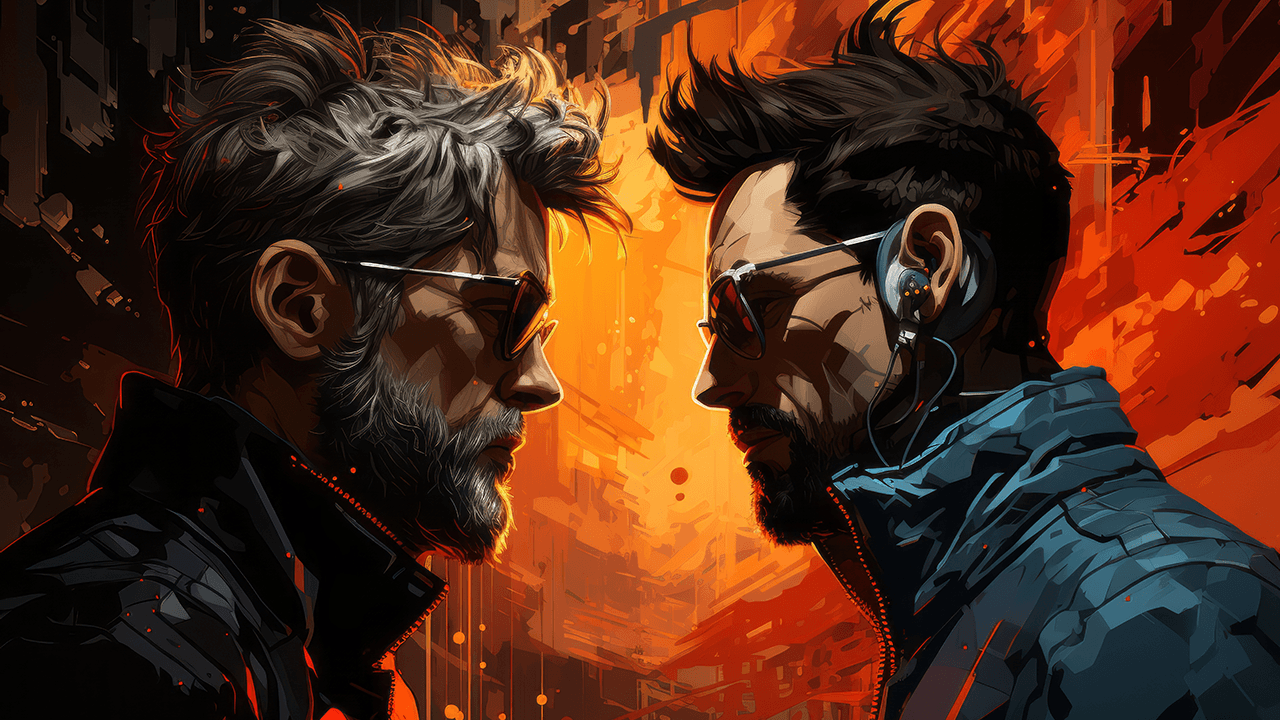Google has made a lot of changes to its SEO algorithm this past year. It’s no surprise to see the advertising and search engine giant doing so. It’s under huge threat from AI content and like any dominant party, it doesn’t take threats to its monopoly kindly.
A dogfight has begun between Google and OpenAI, between Bard and ChatGPT and it is going to be a long one, with no certainty on who will rule the skies and who will plunge to the ground.
Less is more
Generative AI is not new, anybody working in tech knows that it’s been around for years, but now that it’s hit critical mass, the hysteria has officially begun.
More important, however, is what is happening now and how it will impact businesses and the digital landscape. And where that’s happening is with SEO and how users operate on the internet.
During this month’s OpenAI DevDay, the company released an array of new features, notably highlighting the recent launch of GPT-4 Turbo, with its key enhancement being that it is trained on data from April 2023, not more than a year ago.
This date will become closer to real-time as the product improves. This means less ‘hallucinations’, less mistakes and a little less like reading yesterday’s newspaper.
A challenging endeavour
On the opposing side, Google appears to resist this progressive trend, evident in its huge amount of updates to the SEO algorithm throughout the past year. These monthly updates, almost resemble a manifesto of how it regards AI-created content.
Google wants everything to be the latest news and these changes are a huge challenge for OpenAI as it has trained GPT-4 Turbo only on data up to 1st April this year. In this way, Google is trying to harm users of OpenAI and pushing them towards Bard.
This is probably a good strategy from Google, but it does feel a little like King Canute’s attempt to command the waves to recede while sitting in shallow water - a challenging endeavour that may be met by its own set of limitations.
Surely generative AI will find a way around these algorithms, rather like it will find a way to navigate CAPTCHAs and other basic attempts to prove people are ‘human’.
A stopped watch
Google’s SEO algorithm is focusing on user-first content, which ultimately means that GenAI content is punished if it’s not up to date with the latest relevant news/product updates. April 2023 is still a distant time in the past, even if it’s more recent than 12 months ago.
At the moment Bard is more like doggerel than poetry, awful grammar as opposed to literature. It’s a long way behind, but even a stopped watch tells the right time two times a day.
Humans-in-the-loop
Google has to catch up. Microsoft has invested more than $10 billion in OpenAI and wants its oft-derided Bing search rival to benefit from this investment. Losing out to Bing is Google’s worst nightmare.
Essentially, Google is playing for time. It is using its current SEO power to hold up the waves for a little while as it builds and improves its own LLMs and makes Bard superior to ChatGPT/Bing.
This means that, right now, companies that co-opt GenAI are just using a shortcut to create content foundation and they are reliant on humans-in-the-loop to prevent severe drops in their SEO rankings.
This is the only way forward for any company, especially those working in fast-moving e-commerce environments — it has to be humans-in-the-loop or those companies will become invisible on the internet (according to Google).
That is the state of play, right here and right now. E-commerce companies that publish AI-produced content will be marked out by Google and their businesses will be decimated by Google’s strategy. This is not only good news for humans, it is great news for companies that are using humans-in-the-loop.
This may not last forever, but for e-commerce companies, the future is a long way ahead, and it’s what’s happening in real-time that matters to existing and prospective customers.
May the odds be ever in your favour
ChatGPT and especially Microsoft know that Google is doing this and they are both probably, no certainly, working on ways to change this. Whether it’s April or November 2023 or November 2022, things are changing faster than humans, or even AI can catch up.
The human and AI search wars have begun and they may be the key battleground to see how this dogfight pans out and who the victors will be. For now, those winners are using humans-in-the-loop.
Let the games begin… may the odds be ever in your favour, Google and OpenAI.
Frederik Pedersen is the CEO and co-founder of Copenhagen-based EasyTranslate.



Would you like to write the first comment?
Login to post comments